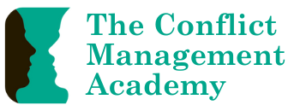I met Sarah Federman when I was a visiting scholar at the Centre for Narrative and Conflict Resolution at George Mason University in Washington DC (now part of the Carter School of Peace and Conflict Studies). We shared an office and many fascinating conversations, including some while paddleboarding on the Potomac River! At the time Sarah was completing her PhD looking at the role of large railway companies in transporting people to concentration camps during the Holocaust – she has another terrific book about that called Last Train to Auschwitz.
Her newest book Transformative Negotiation is such a refreshing book about real life negotiation for everyone, not just white men in suits negotiating corporate deals. Sarah explains that when she first started teaching negotiation in Baltimore, USA, the standard materials used in negotiation training programs didn’t connect with her students. The result of Sarah’s commitment to reflective practice and action research is this book (as well as many positive outcomes for her students as they applied new negotiation skills to their particular situations).
The book explores negotiation in the context of everyday people, and especially those who are from historically marginalised groups or under-resourced communities. It contains practical applications of negotiation theory in everyday contexts, including asking for pay rises, negotiating condom use, negotiation in violent situations and with people in the grip of addiction.
The book includes many insights from Sarah’s students from the University of Baltimore, and people she interviewed from that city while seeking to make her negotiation course more relevant to the students in her class. There are stories from formerly street-involved individuals, those resisting the pull of opioids, homelessness, and debt, and those navigating complicated parenting situations, elder care, or abuse.
This is negotiation for real life, from the margins, and for social change.
I can’t recommend this highly enough! We need more of this kind of work – adapting and developing existing conflict resolution theory and practice to support a diverse range of people in vastly different circumstances.

